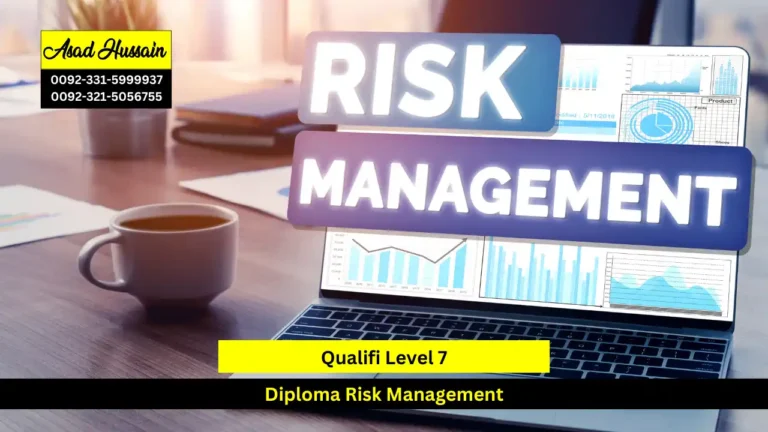Unlock your potential and ascend to new heights in law enforcement with the esteemed OTHM Level 7 Diploma in Police Leadership and Management. In today’s ever-evolving landscape of law enforcement, adept leadership and strategic management are indispensable. This comprehensive program is meticulously crafted to equip you with the prowess and acumen necessary to navigate the complexities of modern policing effectively.
Developed by seasoned professionals and industry leaders, our curriculum encompasses a diverse array of topics crucial for effective leadership and management within law enforcement. From strategic planning and resource allocation to crisis management and community engagement, you’ll delve into every facet of police leadership, gaining invaluable insights and practical skills to lead with confidence and efficacy.
What distinguishes this diploma is its emphasis on practical application and real-world scenarios. Through immersive simulations, case studies, and interactive exercises, you’ll have the opportunity to apply theoretical knowledge to authentic policing situations, honing your decision-making abilities and enhancing your leadership competencies. Whether you’re a seasoned law enforcement professional aiming to ascend the ranks or a newcomer eager to make a meaningful impact, this diploma offers a tailored pathway to success in the dynamic realm of police leadership and management.
Furthermore, our flexible study options, including online learning and part-time study, cater to the diverse needs of law enforcement professionals, allowing you to pursue your educational aspirations while fulfilling your professional obligations. Backed by personalized support from experienced faculty and a vibrant learning community, you’ll receive the guidance and mentorship needed to excel academically and professionally.
Don’t miss the opportunity to elevate your career and lead with distinction in law enforcement. Enroll in the OTHM Level 7 Diploma in Police Leadership and Management today and embark on a transformative journey towards professional excellence. Unlock the door to boundless opportunities and become a catalyst for positive change in your community and beyond.
Program Highlights
The OTHM Level 7 Diploma in Police Leadership and Management consists of 5 mandatory units for a combined total of 120 credits, 1200 hours Total Qualification Time (TQT) and 480 Guided Learning Hours (GLH) for the completed qualification.
Mandatory Units
| Sr# | Unit Title |
|---|---|
| 1 | Creating Strategic Leaders and Managers in Policing |
| 2 | Public Sector Reform |
| 3 | Digital Transformation in Policing and Cybercrime |
| 4 | Strategic Project Management |
| 5 | Strategic Consultancy Research Project |
This qualification is suitable for currently operational police officers who function in a senior leadership and management role. The qualification would also be suitable for police officers who have aspirations to operate in a strategic role.
The qualification is designed for learners who are typically aged 21 and above at the beginning of the course.
The entry profile for learners is likely to include at least one of the following:
- An honours degree in a related subject or UK level 6 qualification or an equivalent overseas qualification
- Mature learners (aged over 21) with relevant management experience (learners must check with the delivery centre regarding this experience prior to registering for the programme)
- English requirements: If a learner is not from a majority English-speaking country must provide evidence of English language competency.
Upon successful completion of the OTHM Level 7 Diploma in Police Leadership and Management, learners will achieve the following learning outcomes:
- Strategic Leadership Proficiency: Develop advanced leadership competencies to formulate and execute strategic initiatives within law enforcement organizations. Acquire the skills to inspire and motivate teams, foster collaboration, and drive organizational change to meet evolving challenges effectively.
- Effective Resource Management: Gain expertise in resource allocation, budgeting, and financial management to optimize the utilization of available resources within law enforcement agencies. Learn to prioritize investments, allocate resources efficiently, and enhance operational effectiveness while adhering to fiscal constraints.
- Crisis Response and Risk Management: Acquire the knowledge and skills to assess, mitigate, and manage risks inherent in law enforcement operations. Develop strategies for crisis response, contingency planning, and resilience building to ensure swift and effective responses to emergencies and critical incidents.
- Community Engagement and Relationship Building: Understand the importance of community-oriented policing and develop strategies to build trust, foster positive relationships, and enhance collaboration between law enforcement agencies and diverse communities. Learn to leverage community partnerships for crime prevention, problem-solving, and public safety initiatives.
- Ethical Leadership and Professional Integrity: Cultivate a strong ethical foundation and demonstrate integrity, accountability, and transparency in all aspects of police leadership and management. Uphold professional standards, adhere to legal and ethical principles, and promote fairness, equity, and respect for human rights in law enforcement practices.
- Innovative Problem-Solving Skills: Develop critical thinking abilities and analytical skills to identify complex problems, analyze root causes, and develop innovative solutions within the context of policing. Learn to apply evidence-based approaches, data analysis techniques, and emerging technologies to address contemporary policing challenges effectively.
- Effective Communication and Conflict Resolution: Enhance communication skills and conflict resolution techniques to facilitate constructive dialogue, de-escalate volatile situations, and build consensus among stakeholders. Develop the ability to communicate effectively with diverse audiences, including internal staff, external partners, and community members.
- Strategic Planning and Policy Development: Gain proficiency in strategic planning processes and policy development frameworks relevant to law enforcement agencies. Learn to analyze organizational needs, set strategic priorities, and develop policies, procedures, and protocols to guide operational activities and ensure compliance with legal and regulatory requirements.
- Leadership in Diversity and Inclusion: Understand the significance of diversity, equity, and inclusion in law enforcement leadership and management. Develop strategies to promote diversity awareness, foster inclusive environments, and address systemic biases to ensure fair and equitable treatment of all individuals within the community and the organization.
- Continuous Learning and Professional Development: Cultivate a commitment to lifelong learning and continuous improvement in police leadership and management practices. Engage in self-reflection, seek opportunities for professional development, and stay abreast of emerging trends, best practices, and research findings in the field to enhance personal growth and organizational effectiveness.
The OTHM Level 7 Diploma in Police Leadership and Management is designed for a diverse range of individuals seeking to advance their careers and excel in leadership roles within the law enforcement sector. This course is particularly suitable for:
- Experienced Law Enforcement Professionals: Seasoned police officers, detectives, and law enforcement officials who aspire to progress into leadership positions within their organizations and enhance their managerial capabilities to effectively lead teams and drive organizational success.
- Police Supervisors and Middle Managers: Current supervisors, sergeants, and middle managers within law enforcement agencies who aim to develop advanced leadership skills, strategic thinking abilities, and managerial competencies to effectively oversee operational activities, personnel, and resources.
- Aspiring Police Leaders: Individuals aspiring to pursue leadership roles within law enforcement who seek to acquire the knowledge, skills, and credentials necessary to transition into leadership positions and make a meaningful impact on policing practices, policies, and procedures.
- Law Enforcement Administrators: Police administrators, command staff, and senior executives responsible for shaping organizational strategy, policy development, and decision-making processes within law enforcement agencies. This course provides them with the tools and frameworks to lead organizational change and drive innovation in policing.
- Community Engagement Specialists: Professionals engaged in community-oriented policing initiatives, crime prevention programs, and community outreach efforts who wish to enhance their leadership abilities, communication skills, and relationship-building competencies to effectively engage with diverse communities and stakeholders.
- Government Officials and Policy Analysts: Government officials, policymakers, and policy analysts involved in law enforcement policy formulation, strategic planning, and regulatory oversight. This course equips them with a deeper understanding of law enforcement leadership principles and management practices to inform policy development and implementation.
- Security and Public Safety Professionals: Security professionals, public safety officers, and emergency responders working in related fields who desire to broaden their leadership skill set and gain insights into law enforcement leadership and management strategies applicable to their roles and responsibilities.
- Career Changers and Transitioning Professionals: Individuals from diverse professional backgrounds who are interested in pursuing careers in law enforcement leadership and management. This course provides them with the foundational knowledge, leadership competencies, and industry-specific insights needed to make a successful transition into the field of law enforcement.
- International Law Enforcement Personnel: Law enforcement professionals from around the world seeking to enhance their leadership capabilities and gain a deeper understanding of policing practices and principles in diverse cultural, legal, and societal contexts.
- Professional Development Seekers: Professionals committed to continuous learning and professional development who recognize the value of acquiring advanced qualifications and specialized training in law enforcement leadership and management to advance their careers, broaden their skill sets, and stay competitive in the field.







